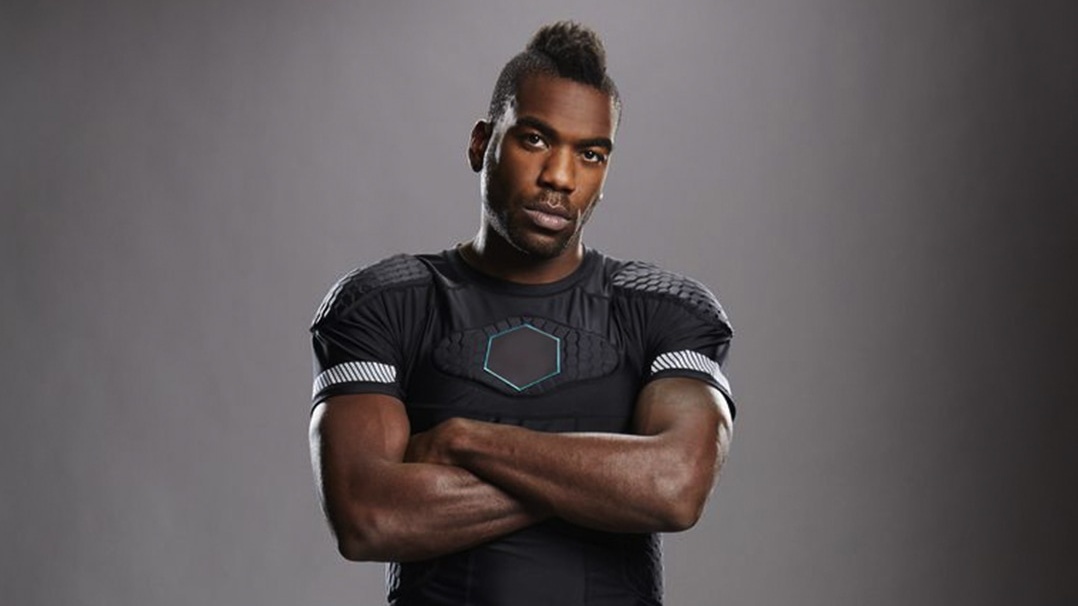If you picture the archetypal triathlete — running, swimming, trekking, often under extreme conditions — chances are none of the athletes who come to mind are Black. Traditionally, triathlons were not the arena for Black athletes.
But that’s old news, thanks to Max Fennell, the triathlete who’s changing the face of endurance sports by providing visibility for aspiring Black triathletes and embodying change at a soul level. Even while he’s winning in endurance sports at a national level, the entrepreneur is inspiring his community and seeking to change how advocacy and local politics work from the inside out.
At the Starting Line
Growing up as a varsity athlete in Philadelphia, Max always had a future destined for championship. “I had hopes of becoming a professional soccer player,” he says. “But after suffering a knee injury in college, it kind of derailed my plans.” After getting approached by an older customer in the cafe where he worked, Max had to make a new decision about his future.
“He said to me, ‘What are you going to do now?’ And I said, ‘I don't know. Maybe I'll do one of these triathlons or go do, like, an Ironman.’” The customer suggested Max try out for the Philadelphia Triathlon, and he went for it. “I got seventh in my age group, and then I thought, ‘Maybe I'll just pursue this thing.’”
His first big race in 2011 catapulted him into the world of endurance sports, and in 2014, he became the first professional Black triathlete in history. In 2020, his superhuman efforts paid off, and he reached new heights while competing in the #TriWeek Triathlon Tournament. He grabbed first place in the race, cementing his place as the first Black triathlon champion in history.
And even though he’s seen some pretty big wins, he admits that competing at that level is not a straightforward journey for athletes of color. “I've won races, and it was still always just me looking around and being like, ‘Yo, I'm still the only Black guy.’”
Changing The Face Of The Triathlon
It takes more than a little mental toughness to be the only Black person in the room. And in competing at the top tier of any sport, the pressure just multiplies. In Max’s case, that pressure was compounded by the fact that he was pioneering in the world of endurance sports — an arena that hasn’t always been kind to people of color. “You know, I'll be honest. Triathlon is still a pretty racist sport,” he says. “I was going at it alone in an industry that was doing everything that it could to make sure that there weren't opportunities for me.”
From facing segregation to neglect to disproportionate hardships during his career, Max met plenty of obstacles that many in the sport don’t have to face. And unfortunately, those obstacles are far too common for athletes of color.
From a young age, the fracture along color lines is clear. Max says, “Triathlon has always been kind of set up to identify the white kid that comes from a rich family that has access to a pool. Being a Black American, we don't have access to certain things. I didn't grow up as a swimmer. A lot of kids don't have access to swimming pools.”
Max knows this disparity firsthand as a kid growing up in Philadelphia, as well as working with inner-city kids in Chicago and witnessing the polarity within his homebase of Menlo Park, California. He recalls witnessing the closure of the public swimming pools in his town as a catalyst for action. “I went to the city council and said, ‘Hey, we have this underused pool. It's in the Black and brown area of Menlo Park, and it’s always been neglected. Why don't we create a free swim program?’” After hearing his concerns dismissed by those officials, he decided to take action.
Leveling The Playing Field
In the last few years, the multi-hyphenate has been actively advocating for change in his community and is now seeking to make a lasting impact by getting into politics. He began his city council run after trying to create the swim program. "I think it’s important for people to realize that, when you run for local politics, it allows you to develop a voice," he says. "How can we expect there to be change if we don't have a seat at the table?"
And even with his political endeavors, Max hasn’t stopped advocating for kids and aspiring athletes. He’s been mentoring youth in the inner-cities for years and even has aspirations of starting his own foundation, providing much-needed resources and equipment for young triathletes of color. “I'm very, very passionate about opening up doors however I can for the next generation of promising athletes,” he says. “Just that next little bit for them to reach the next level and become a professional."
One thing Max advises to athletes who want to reach that next level is to just show up. "I was in Florida, living in a closet, surviving paycheck to paycheck, competing in a sport that had done a lot of things to hold me back. But I still showed up. And when you cross that finish line after putting in all that hard work, and after all that adversity, you realize, 'I went through all that myself. And that means that I can accomplish anything, as long as I just stay focused and stay true to what I want to achieve.’”
As he looks ahead to the future of endurance sports, Max would like to see a lot more faces from underrepresented communities. “I want people to tap into their fearlessness,” he says. “Even if you start small, just get into that mindset of being like, ‘I'm a badass melanated being that has this ability to persevere through all the harshest things that you could ever imagine.’”
This editorial is brought to you in partnership with Nike Play New.
